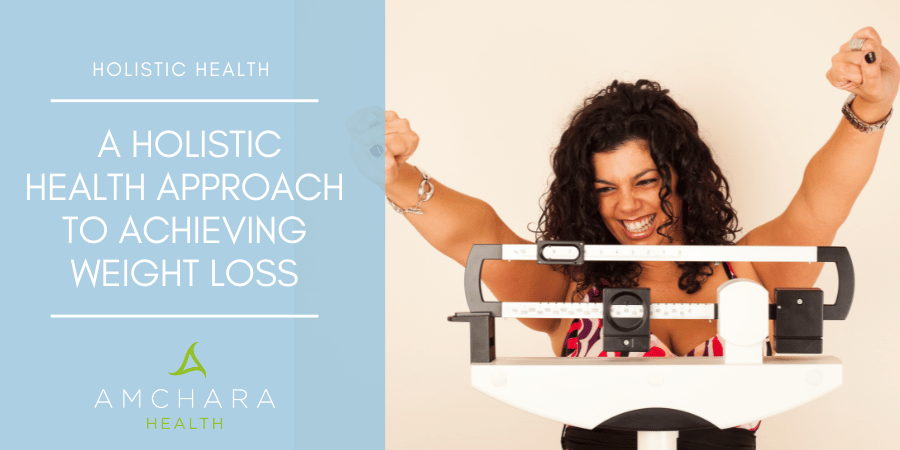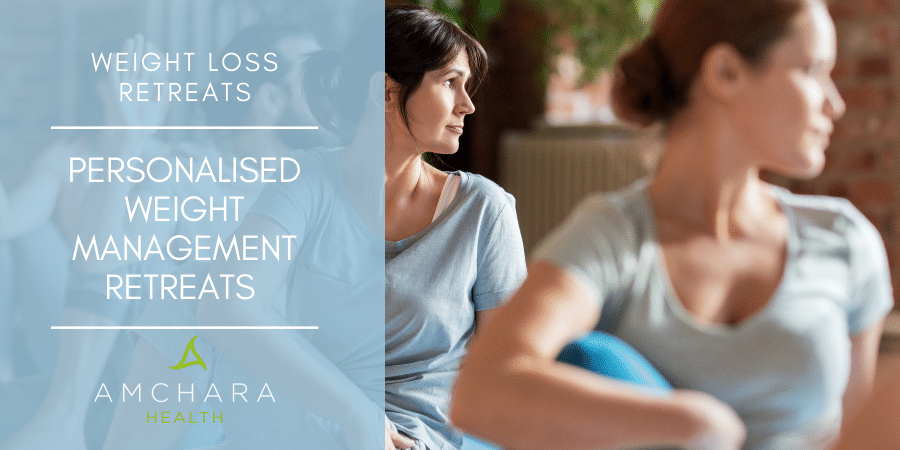If you’ve been attempting to lose weight unsuccessfully, chances are you have been trying to stick to the latest fad ‘diet’.
One of the many out there championed by stick thin celebrities that promise amazing results in no time at all!
These kind of diets are usually pretty restrictive, dull as dishwater and hard to maintain because they leave you hungry all the time.
Little wonder that you can’t summon up the motivation to keep going and then give in to the lure of the biscuit tin the minute work and stress take over.
In this article, we look at how fasting can help you lose weight and why a retreat works, plus some very useful tips on how to continue your weight loss plan post-retreat.
TABLE OF CONTENTS
- The many advantages of a weight loss retreat
- Fasting in a nutshell
- Top weight-loss tips, post-retreat
Common sense tells us that the way to shed pounds on a permanent basis is through changes to your usual food choices and a few tweaks to your lifestyle.
Easier said than done eh?
If you’re really struggling to turn a corner and making half hearted attempts to change your way of living, you might just need a helping hand.
It’s all about getting into the right ‘head’ space and this is where a retreat can be just the right solution at the right time.
Fasting can give you the kick start you need to tackle difficult lifestyle changes and point you in the right direction.
Fasting on a weight loss retreat isn’t for the faint hearted and can be quite extreme initially, depending on whether you opt for just juices or solid food, but the end results are really worth the time and effort and will mentally spur you on.
The many advantages of a weight loss retreat
- You’re in a peaceful calming environment geared to healthy living
- You’re surrounded by other people with a mutual desire to lose weight
- Your menus are planned for you, so you don’t even have to think about what you should or shouldn’t be eating
- You have no work, friends, family or other distractions to throw you off course, so you can totally immerse yourself in ‘me’ time
- You have a team of skilled health practitioners at hand whose sole purpose is to support you through the process and help you to reach your goals
- You have regular activities geared to focus on your body and appreciate just what an amazing gift it is
- You’re given motivational talks on health and nutrition that teach you how to make the right food and lifestyle choices for the longer term
Fasting in a nutshell
Fasting is one of the most ancient and widespread healing traditions in the world and has been used throughout millennia by physicians as a therapy for a whole host of health conditions.
Its benefits have also been widely accepted in the scientific community of late.
Researchers have identified that stress to the body caused by fasting triggers immune responses which reduce oxidative damage to cells and produce positive metabolic changes (2)(3) including:
- Reduction in LDL
- Reduction in triglycerides,
- Lowered blood pressure
- Weight loss
- Reduced fat mass
- Lower blood glucose levels
- A decrease in inflammation (1)
Toxins in the environment and in the food you eat can overwhelm your liver and lead to inflammation throughout the body that may result in a number of detrimental health conditions.
Fasting is an efficient way of detoxifying your body, it helps to facilitate deeper cleansing by eliminating toxins such as dead cells, fatty tissue, intestinal mucus and other waste products stored in the body.
During a fast, the body also transitions from using glucose as its primary fuel source to using fat, which is another storage depot for toxins.
Burning fat for fuel increases toxin elimination and as an additional bonus facilitates weight loss too.
Fasting may lead to a renewed sensitivity of your nervous system, helping you to eliminate toxic additions like caffeine, cigarettes, and alcohol.
Your sense of taste is heightened, so you appreciate foods which are unprocessed and sugar free much more than you may have previously.
This makes the transition from a poor diet to healthier nutrition that much easier, which in itself promotes effortless weight loss.
How long you choose to fast will be up to you with expert guidance from your personal health practitioner.
A one day fast initially may help to increase your confidence and enable you to evaluate your body’s reaction to fasting.
Once your confidence increases you may find you can continue to fast for a period of 2-3 days or more.
You will be carefully supervised throughout the fasting experience.
As your body releases the toxins stored in tissues, you may experience nausea, headaches, and diarrhoea.
Chronic illnesses may even feel worse during fasting because the amount of circulating toxins increase in the body, but these are all part of the body’s own self healing mechanisms and will gradually lessen.
Once you get past the temporary ‘healing crisis’ the initial unpleasant detox effects are rapidly replaced by a lighter body, abundant energy and a renewed sense of optimism.
Just what you need to take home with you so that you continue with all the good work!
Top weight loss tips – post retreat
Now you’re home from the retreat, revitalised and ready to go, this is when the real challenge begins.
If you want to ease into a healthier eating regime slowly, start by halving the portion sizes of the foods you have a weakness for.
For instance, if you eat 4oz cheese every week, cut down to 2oz.
If you drink 6 glasses of wine at the weekend, cut down to 3 and so on.
This can help to wean you off of less healthy foods and you may be surprised to find even small changes like these can produce weight loss.
In the long term, the following handy tips should help to keep up the momentum and ensure you reach your weight loss goals.
- Include lots of fresh fruit, vegetables and salad in your daily menu.
- Some raw fruit and vegetables such as pineapple and asparagus have the advantage of containing higher levels of enzymes that aid the digestion.
- Raw veggies also keep your bowels regular and can help to alleviate hunger between meals.
- Keep an eye on your portion sizes. Don’t pile up your plate, you can always have more later if you are still hungry.
- Look at what’s on your plate. Do you have the right balance of protein, carbohydrate and veggies?
- For your main meal, at least half of your plate should be made up of vegetables or salad, a quarter should be a source of good quality protein (tofu, beans, eggs, chicken, fish) and around a quarter should be filled with a carbohydrate such as brown rice, sweet potatoes etc.)
- For easier weight loss remove the carbohydrate portion in the evening. This is the time of day when you are less likely to be active so the carbs don’t get used and may be stored as fat.
- Chew your food well and don’t rush your meal. This gives your brain time to register that you are full and stops you overeating. It usually takes about 20 minutes for this to happen so wait before helping yourself to another portion.
- Drink a glass of water or herbal tea before a meal as this can help to curb hunger so you eat less.
- Focus on your food completely. No TV, computer or mobile at the table, enjoy every mouthful, savour the tastes and textures.
- Avoid eating when you are stressed, not only does it hinder your digestion but it’s difficult to focus on your food and keep tabs on how much you are eating when you have things on your mind.
- Clean your teeth after a meal – this can stop you looking for something sweet.
- If you’ve eaten enough, but your plate still has food on it, cover it straight away and pop it in the fridge for another time. Some people even pour water on their leftovers to stop the temptation to go back for more!
- If sweet cravings are a problem try supplementing with chromium. This essential mineral helps to improve blood glucose control, making you less likely to reach for a sweet snack. (4)
- Keep a food diary, it really helps you to think about what you are eating when you are eating and how much you eat. Add notes around your mood too, as this may identify when you eat for emotional reasons.
- Monitor your progress by measuring your hip and waist measurement every couple of weeks. This way you can really see how the weight loss is changing your shape, weighing scales don’t always reflect this.
- Keep up a regular exercise routine. Not only does it help with weight loss but it also increases muscle tone and lifts the happy hormones in the brain, making it less likely you will fall off the wagon.
- Steady moderate exercise such as walking is easy to do and less likely to cause injuries. 30 minutes a day is sufficient to gain all round health benefits.
For more information on how an Amchara retreat can help you with weight loss, visit the Weight Management pages
READ NEXT:





